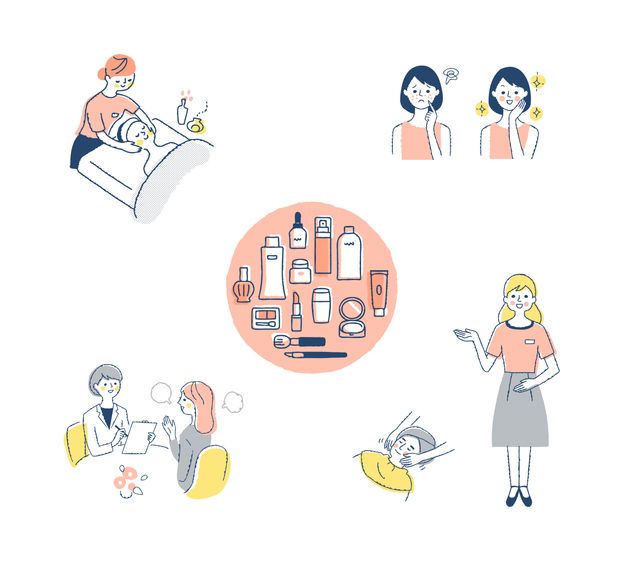
Book Now to Experience
Acne Treatment
1 Minute Self-Registration
Date should not be before minimal date
Author: Leila Tan|Updated: 23 July 2024
Acne is a frustrating problem that nobody likes to face. Whether they appear singly or in a cluster, the unsightly and painful spots are a nuisance on our faces. To begin, why do some people experience more severe acne than others, and what causes acne in the first place? Where can you find the most recent spot treatment cream, and what exactly does it do to make your troubles go away? Find out what happens in the next section.

1
Where Do These Pesky Pimples Come From?
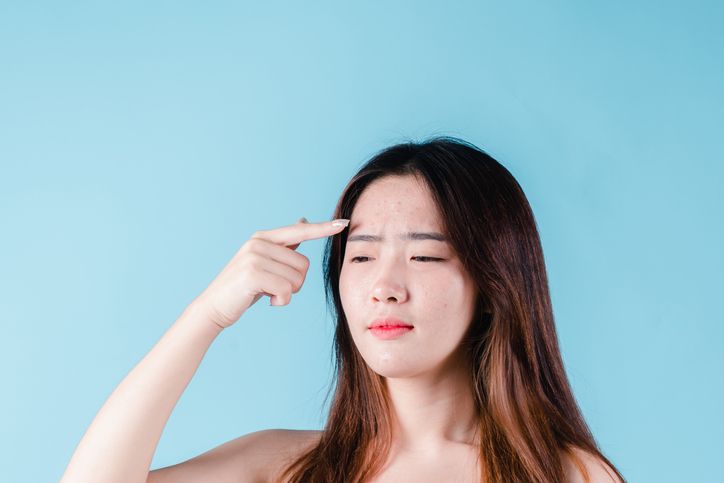
Acne, often known as pimples, is a prevalent skin disorder that affects individuals of all ages. While being most usually associated with adolescents and young adults due to their rapid hormonal shifts and excess oil production, acne can occur at any age, and oil plays a significant role in its development.
When oil (sometimes referred to as sebum) combines with debris and dead skin cells, it can clog pores. This allows bacteria to flourish, resulting in inflammation and redness around the restricted area. As the oil continues to accumulate beneath the skin's surface, a whitehead or blackhead forms. Whiteheads can transform into painful cysts or nodules if further irritated by oil buildup and germs.
Whilst occasional outbreaks may be unavoidable, there are steps you may do to limit oil production and the likelihood of getting acne. Cleansing your face with a gentle cleanser on a daily basis will help maintain a healthy oil balance while eliminating debris and bacteria from your pores.

2
How Acne Prone Skin People Usually Deal with Their Enemies?
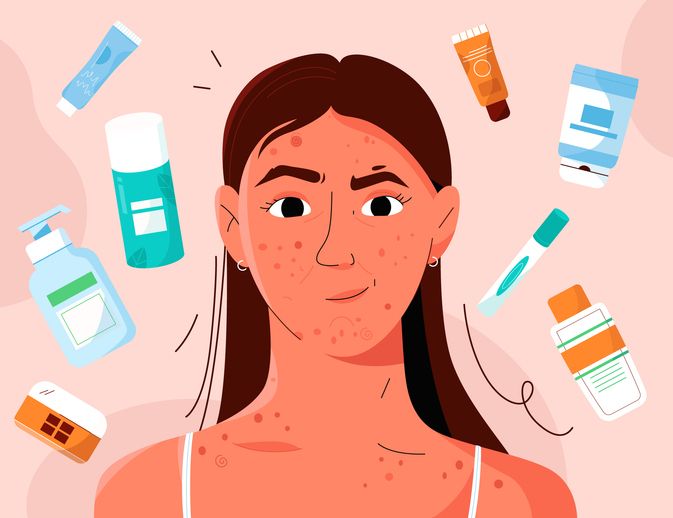
The battle of a blemish prone skin is tough, but there are various allies that can help to improve your skin condition, be it oily skin or sensitive skin. Find products that can help remove dead skin cells, get rid of extra oil, reduce inflammation. and also help clear out clogged pores. For severe acne, a dermatologist may also recommend topical antibiotics or prescription drugs like isotretinoin that kill bacteria and control the amount of sebum made by the skin. Other treatments, like chemical peels and light therapy (photodynamic therapy), can also be used to target deeper layers of skin for more noticeable results. In some cases, you may be told to take antibiotics by mouth or get steroid injections. And these are what we called spot treatment.
Elaborate more about acne spot treatments.
Spot therapy is a type of skin care approach designed to target specific regions affected by zits, acne, or other forms of irritation. Spot treatment often employs acid-based compounds to specifically kill bacteria and reduce inflammation in the afflicted area, while treating the rest of the face softly.
Salicylic acid and glycolic acid are both frequent acid spot treatments. They are often available as a gel or cream that can be applied once daily to problem areas, but it is important to consult a dermatologist before using any treatments containing acid, since these compounds can produce negative effects if taken too frequently or in excessive quantities.
Read More

3
Type of Spot Treatments
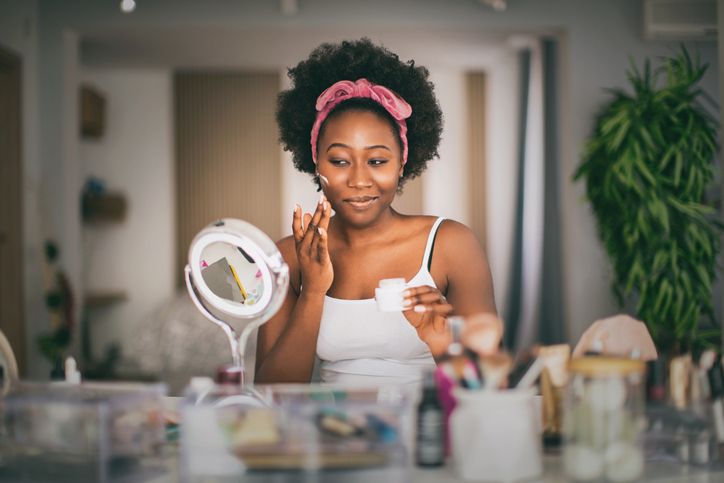
This is a placeholderaAs mentioned above, spot treatments are available in a variety of over-the-counter (OTC) and dermatologist-prescribed formulations. The majority of over-the-counter topical therapies, such as benzoyl peroxide, salicylic acid, and glycolic acid, contain active chemicals that reduce inflammation and encourage skin shedding. It typically takes a few weeks for these spot treatments to begin working, and they are most effective for minor outbreaks. Doctor-prescribed topical therapies may contain higher quantities of active chemicals such as tretinoin or isotretinoin. These treatments can help eliminate acne more quickly than over-the-counter remedies, but they can also cause skin dryness and irritation.
Individuals with severe or persistent acne may also require oral antibiotics or retinoids (isotretinoin) to treat their pimples. Antibiotics taken orally kill microorganisms on the skin's surface, while retinoids prevent the skin from producing oil, hence preventing pores from becoming blocked. Due to the potential negative effects, these spot treatments should only be administered under a physician's supervision.
If you want to treat acne spots without adding harsh chemicals to your routine, there are some natural solutions on the market that can alleviate symptoms. Natural creams having antibacterial and anti-inflammatory qualities, such as tea tree oil, witch hazel, aloe vera gel, apple cider vinegar, and honey, which can eliminate bacteria on the skin's surface and lessen the inflammation associated with acne. Some individuals may also find that using light face scrubs containing sugar or other exfoliating agents prevents dead skin cells from blocking their pores and reduces the likelihood of a breakout.

4
The Cream One Sounds Easy, But How Do I Use Spot Treatment Cream?
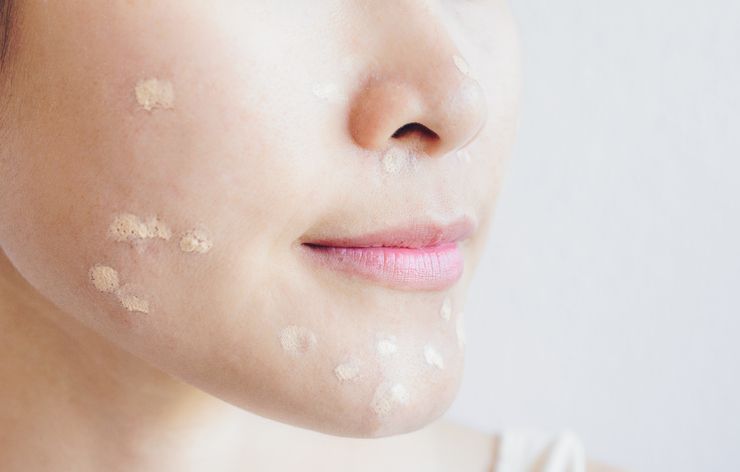
The method of spot treatment should begin with a thorough cleaning of the face with lukewarm water and a mild cleanser suited to the kind of skin being treated. Afterwards, apply a pea sized amount of acne treatment product directly to each individual issue region, but avoid applying too much pressure! Finally, use an oil-free moisturiser after cleansing for the best effects. Professional facials may also be beneficial in preventing future outbreaks for patients with severe acne that is resistant to topical treatments, as they thoroughly cleanse pores of dirt and bacteria. In addition, hormone-balancing drugs may help prevent future flare-ups if hormone imbalances are present. Be sure to follow the few steps below to ensure you do it right without hurting your skin texture.
Clean and Tone Your Face
When treating a breakout, it is important to not only focus on the active components in your spot treatment, but also to clean and tone your face for the greatest results. When you wash your face, you remove the germs, grime, and other impurities that have accumulated on your skin over the course of the day and may be blocking your pores. This is crucial before applying any active chemicals that may stimulate oil production. Acne lesions may be less noticeable after you tone since your pores will be closed and your skin will be returned to its normal pH level. Also, toners' active components, such salicylic acid, can aid in unclogs pores. Acne treatments with active ingredients work best when used in conjunction with a thorough cleansing and toning to ensure that the active ingredients reach every area of the skin.
Moisturise all over
Although it may seem unrelated, moisturising is actually a crucial part of treating acne. In most cases, excess oil (also known as sebum) and dead skin cells combine to cause acne. By maintaining the skin's natural moisture levels, moisturising can help regulate oil production and lessen the likelihood of outbreaks. Using a moisturiser in conjunction with an acne treatment can help reduce the risk of further skin irritation. By using a moisturiser with a lightweight formula, you may exfoliate your skin and remove dead skin cells without introducing any more oils or unnatural substances that could clog your pores and lead to more outbreaks. Mild moisturisers can also reduce the redness and irritation caused by acne, allowing the pimples to heal more quickly.
Layer your essences and serums
When treating a spot, stacking your essences and serums can expedite the process and produce better results. Several layers of active substances ensure that the active compounds are effectively absorbed by the skin and penetrate deeper layers. This can help brighten the skin, reduce redness, and alleviate any pain produced by acne.
By regulating the amount of the active ingredient utilised, layering prevents the skin from becoming overly dry. By applying a serum or essence layer prior to acne treatments, you can obtain additional hydration, which helps to prevent the drying effects of the active components. In this way, layering can help brighten skin without causing it to become dry or sensitive, as might occur when treating a single location.
Not only does layering essences and serums make skin appear brighter, but it also improves their efficacy. Since the majority of skin care products contain water, layering makes it easier for your skin to absorb each successive layer. Hence, when essences and serums are applied in layers, the active ingredients are able to penetrate deeper into the pores and be better absorbed. After only a few uses, this can make your skin appear more radiant.

Book Now to Experience
Acne Treatment
1 Minute Self-Registration
Date should not be before minimal date

5
Side Effects of Excessive Use of Spot-Treatment Cream
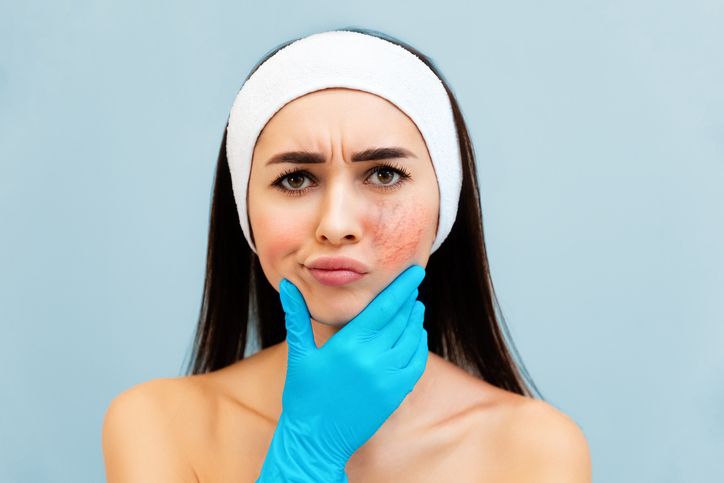
Although there are numerous effective acne treatments, including those introduced by celebrity estheticians, overtreating acne can result in a number of problems, some of which can be extremely serious.
Spot treatments for acne are incredibly effective, but their misuse can have catastrophic results. Incorrect application of spot treatments for acne can irritate the skin and result in further outbreaks and dryness. This can leave the skin even more susceptible to the sun's and other irritants' harmful effects. If acne is treated too vigorously, scarring might ensue. Spot treatments can be useful, but excessive use will cause your body to produce additional oil as a response.
Frequent use of strong chemicals on acne, such as salicylic acid and benzoyl peroxide, can cause redness, swelling, and skin that is sensitive and easily irritated. This can make your acne worse by boosting oil production and spreading acne-causing bacteria by touching and rubbing your face. Some acne spot remedies contain synthetic fragrances and other ingredients that can irritate the skin and obstruct pores. To avoid further outbreaks, acne spot treatment should be used with caution and the proper products for your skin type.
It is essential to remember that excessive or incorrect use of chemical compounds or abrasive exfoliants to treat acne may cause irreversible damage. Before employing acne spot treatments, you should consult a dermatologist who is board-certified in skin care to determine what is causing your acne.

6
How Should I Best Arm myself in the Battle Against Acne?
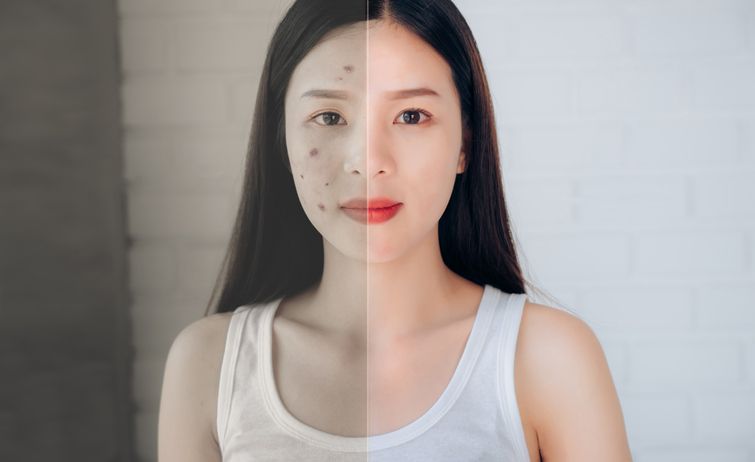
If there isn't enough time in your life cycle to avoid acne altogether, it will likely show up when it's most inconvenient. When a breakout finally begins, the best feeling in the world is finding an effective approach to get rid of acne right away. Try these suggestions if annoying pimples have you down for the count.
Using sun protection is a must
This thin layer is highly vulnerable and needs a lot of care, but many individuals don't realise how crucial it is to keep their skin barrier healthy. SPF-containing lotions and creams should be used by everyone. The sun can accentuate the appearance of scars and hyperpigmentation caused by acne for those who already have them. In order to reduce the risk of pigmented acne, experts recommend limiting sun exposure. Clothing and sunblock with an SPF of 30 or higher are recommended. It doesn't matter if it's raining or snowing outside; people still need to take measures to protect their skin.
Vitamins and minerals can help tremendously
The best supplement for acne is one that contains proven ingredients for reducing inflammation and scarring. Zinc and selenium are present, as are vitamins A, C, and E. Acne-causing bacteria growth is stifled by vitamin A, and new, healthy skin cells are generated as a result. Due to its antioxidant properties, vitamin C can reduce acne scarring by keeping the skin from absorbing harmful free radicals. Vitamin E's moisturising and healing properties can make it easier to fade dark spots on the face. Several people believe that selenium can boost immunity and that zinc oxide can reduce inflammation associated with acne. In addition to these necessary nutrients, certain supplements may also include anti-inflammatory plant extracts like green tea or turmeric. Effective internal treatment of acne can be achieved by combining nutritional supplements with topical therapy.
Treat your acne with the right treatment
Treatments with technologies developed for the sole purpose to eliminate acne have proven to be more effective than natural treatments for the condition. A widespread practise is microdermabrasion. The signs of ageing, like wrinkles and scars, can be minimised with the use of microdermabrasion, a skincare procedure. The face is exfoliated using a special tool to get rid of the top layer of dead skin cells and any lingering dirt or sebum. As a result, your pores will be unblocked, blood flow will be increased, inflammation will be decreased, and your skin's tone will be evened out. Here's some good news for those who desire a speedy solution to their acne problem: If you've tried spot treatments and acne medication without success, New Beauty's Acne Treatment may be the most successful solution yet.
Read More

7
Acne Treatment by New Beauty: The Best Ally to Solve Your Skin Concerns
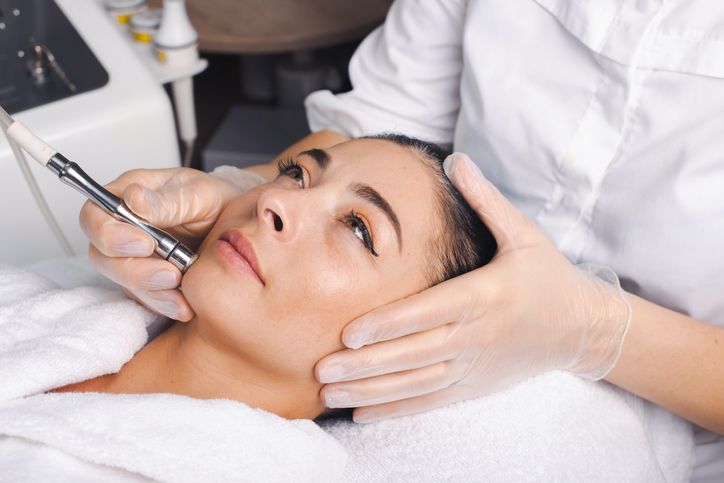
Acne vulgaris, whiteheads, and blackheads are the types of acne that this Acne Treatment can fix. The Acne Treatment combines two-way spiral suction and drainage technology to exfoliate and wash acne-prone skin deeply and gently. This procedure simultaneously eliminates dead skin cells and unclogs clogged pores, which can lead to acne outbreaks. The breakthrough technique also helps to reduce acne-related inflammation and infection, resulting in a face that is smoother and more toned.
The Acne Treatment employs a clinical-grade moisturising serum that penetrates the dermal layer of the skin, thereby nourishing acne-prone skin, once the laser treatment for acne has been completed. The unique moisturising essence also aids in balancing the water-sebum ratio on the skin, preventing the sebaceous glands from secreting excess sebum for a brighter, less oily face.
The moisturising serum used in the Acne Treatment also encourages the development of new collagen, which fills the pits of acne scars for a more radiant face with fewer indents and inconsistencies. This treatment is great for reducing the frequency of acne outbreaks, and it's suitable for all skin types. This enhanced vacuum microdermabrasion does not use any coarse crystals or external drugs besides the moisturising serum to restore the equilibrium of your skin's sebum secretion and speed up the reduction of pimples.

8
The Bottom Line
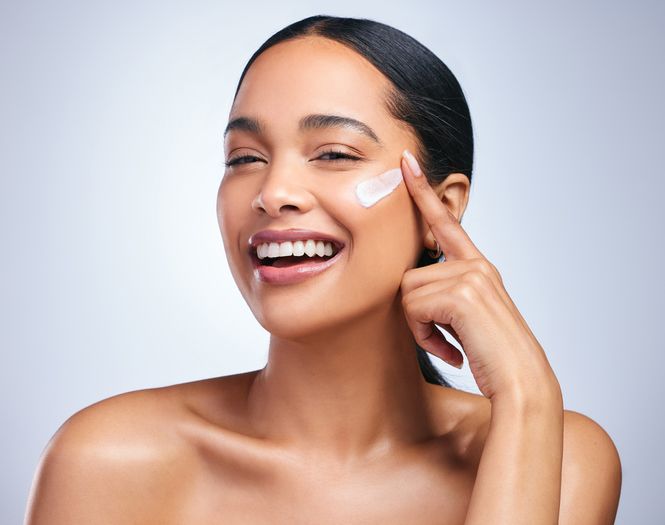
It's important to remember that acne needs time to heal. Patience is the key to treating your breakouts! When you pop a pimple, applying gentle pressure will help get rid of the oil buildup without making your skin feel worse. It is also crucial to have good skin care habits, like washing your face twice a day and putting on SPF protection during the day. These simple steps can make a big difference in preventing future breakouts. Lastly, don't forget how important it is to have the right acne treatment, so you should leave your acne worries behind as soon as possible. Drop by any New Beauty outlet today to feel the difference between unclog pores and translucent skin.
FAQ
Why benzoyl peroxide and salicylic acid are commonly used in spot treatment?
Since the 1960s, benzoyl peroxide has been an essential component of topical therapy for acne vulgaris because of its potent antibacterial properties, benzoyl peroxide can be used to treat and prevent acne. Benzoyl peroxide also aids in decreasing oil production in the skin, which can help prevent pores from becoming clogged. As for salicylic acid, by sloughing off dead skin cells from the skin's surface and opening up clogged pores, salicylic acid can help diminish the look of discoloration. There are anti-inflammatory characteristics that aid with the redness and irritation that come with acne breakouts that are already present. The right application of benzoyl peroxide and salicylic acid will reduce active pimples and prevent future breakouts from occurring.
What spot treatment cream formula is more suitable for sensitive skin?
For acne-prone, sensitive skin, a product using gentle formula and gel formula is the most suited alternative. Gentle formulations are designed to be light and non-irritating, hydrating and nourishing the skin without creating further dryness or blocking pores. Typically, they contain natural substances such as aloe vera and chamomile.
Who would benefit from the Acne Treatment?
The Acne Treatment is ideal for persons with mild acne, acne that has worsened, acne vulgaris, whiteheads, blackheads, acne lesions, acne scars, and other skin conditions associated with acne-prone skin.
How many times do I need to go through Acne Treatment?
The Acne Therapy is tailored to each patient based on the extent of their acne condition. Customers are typically advised to commit to 10–12 sessions.
How long do I have to wait before I can do anything again after getting the Acne Treatment?
Due to the fact that the Acne Treatment is a non-invasive method no specific recovery period is required afterward.

Book Now to Experience
Acne Treatment
1 Minute Self-Registration
Date should not be before minimal date
Recommended Articles
COPYRIGHT© NEW BEAUTY MANAGEMENT LIMITED 2025. ALL RIGHT RESERVED.


